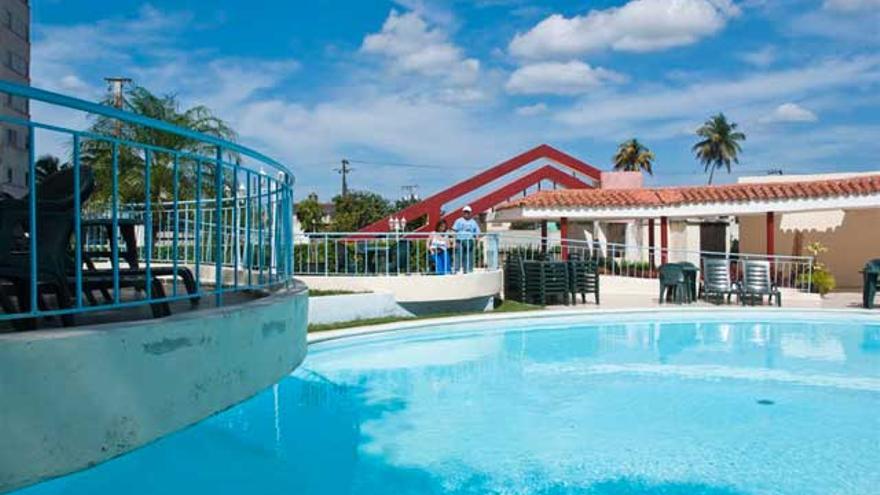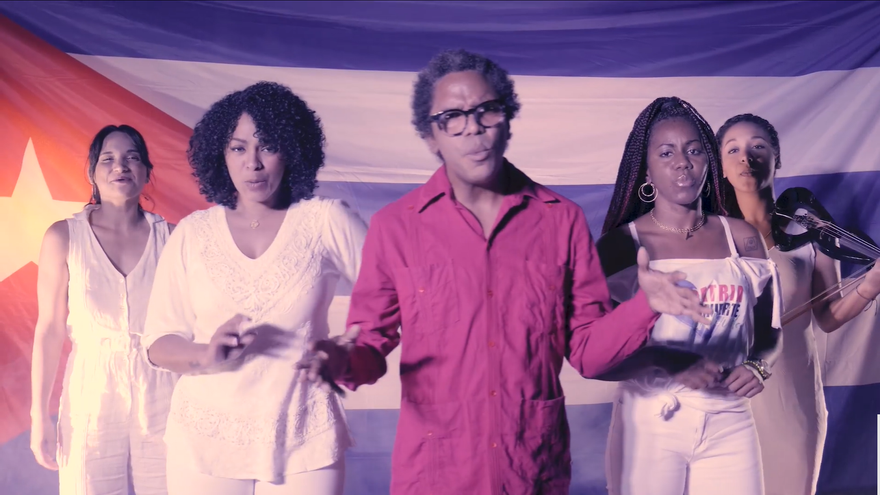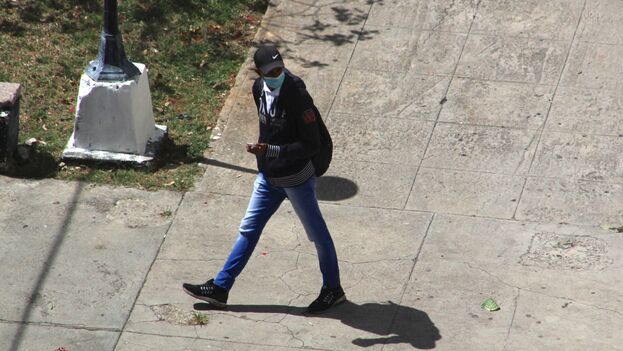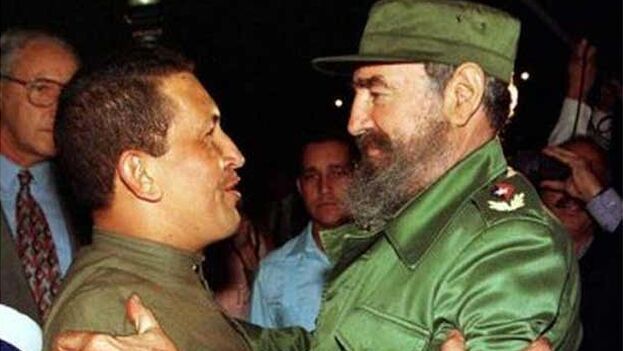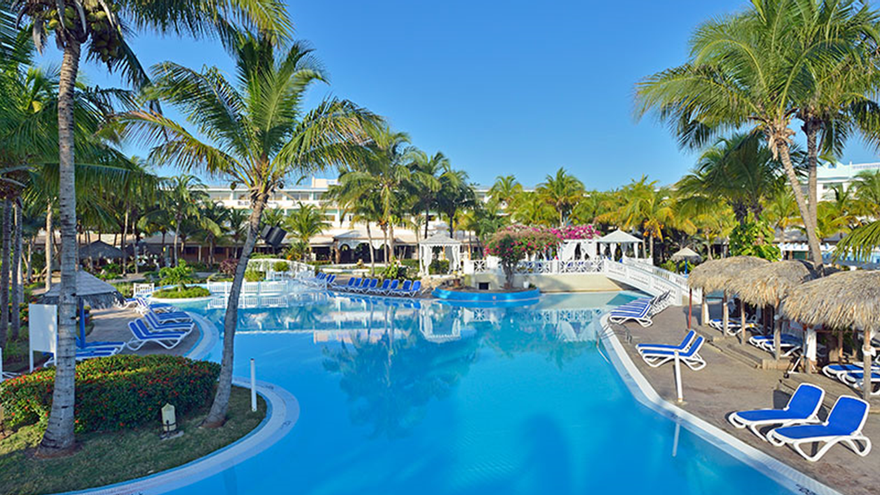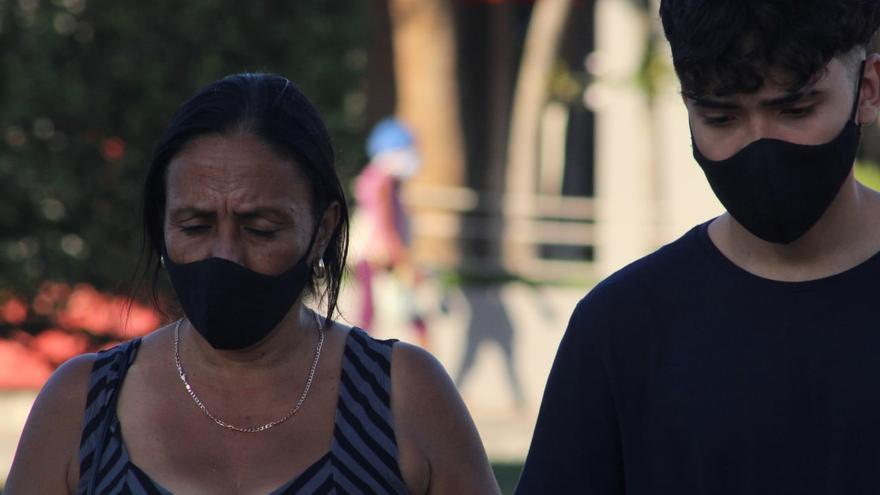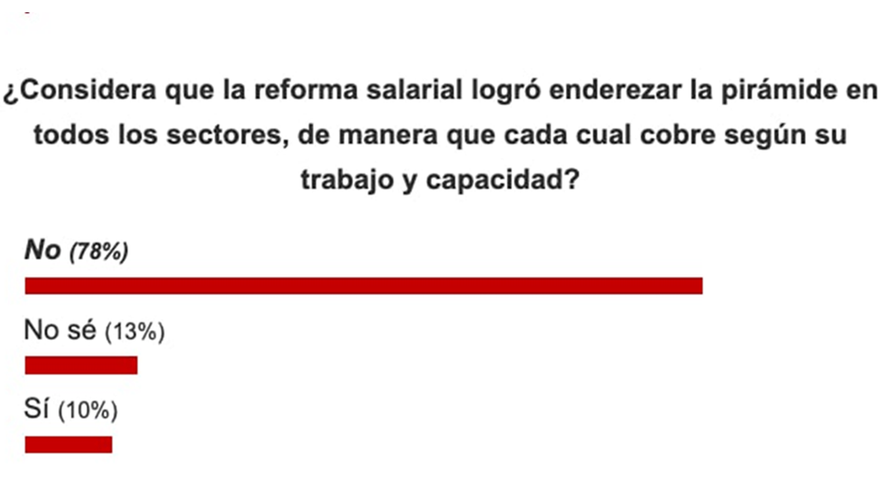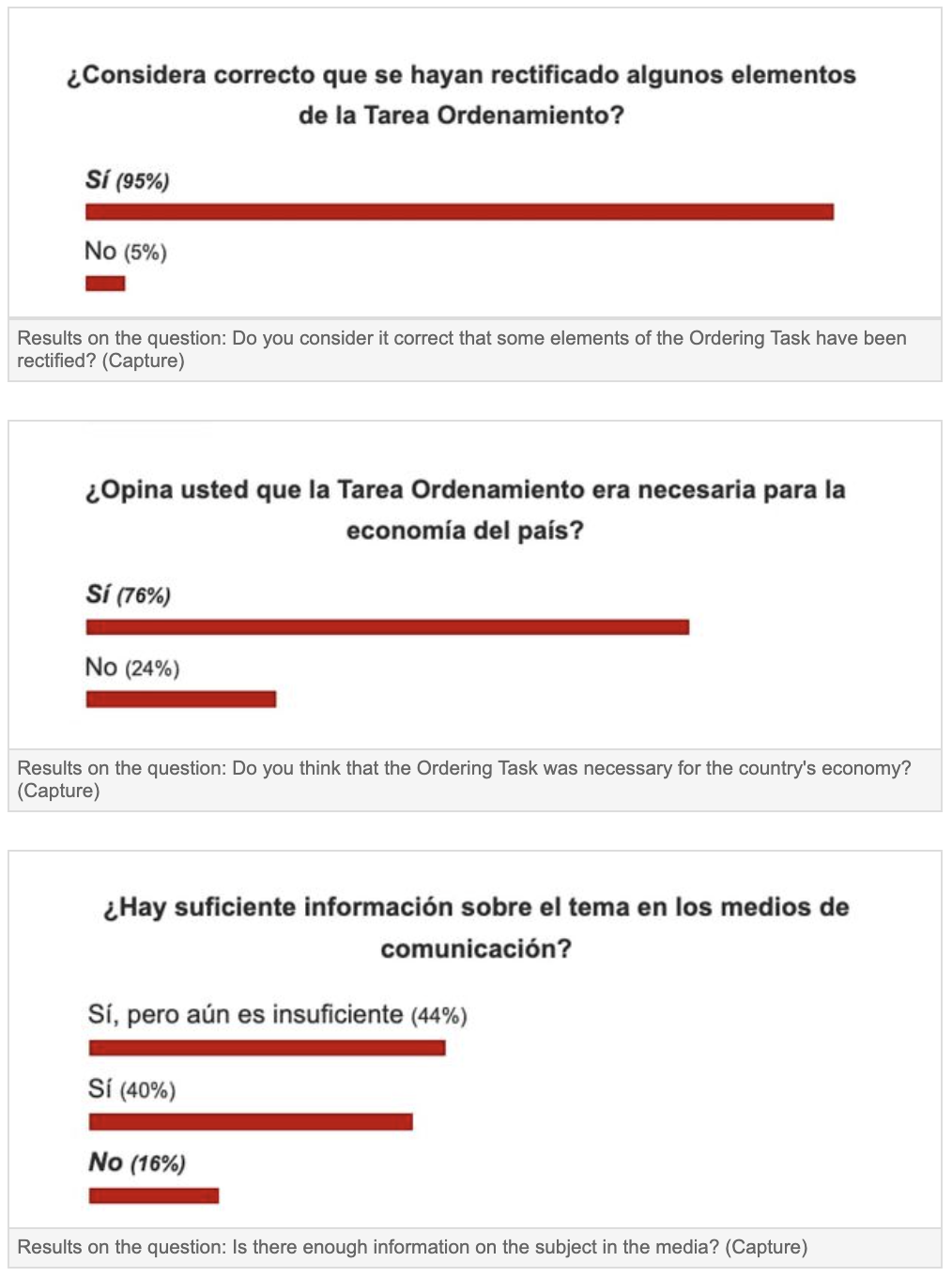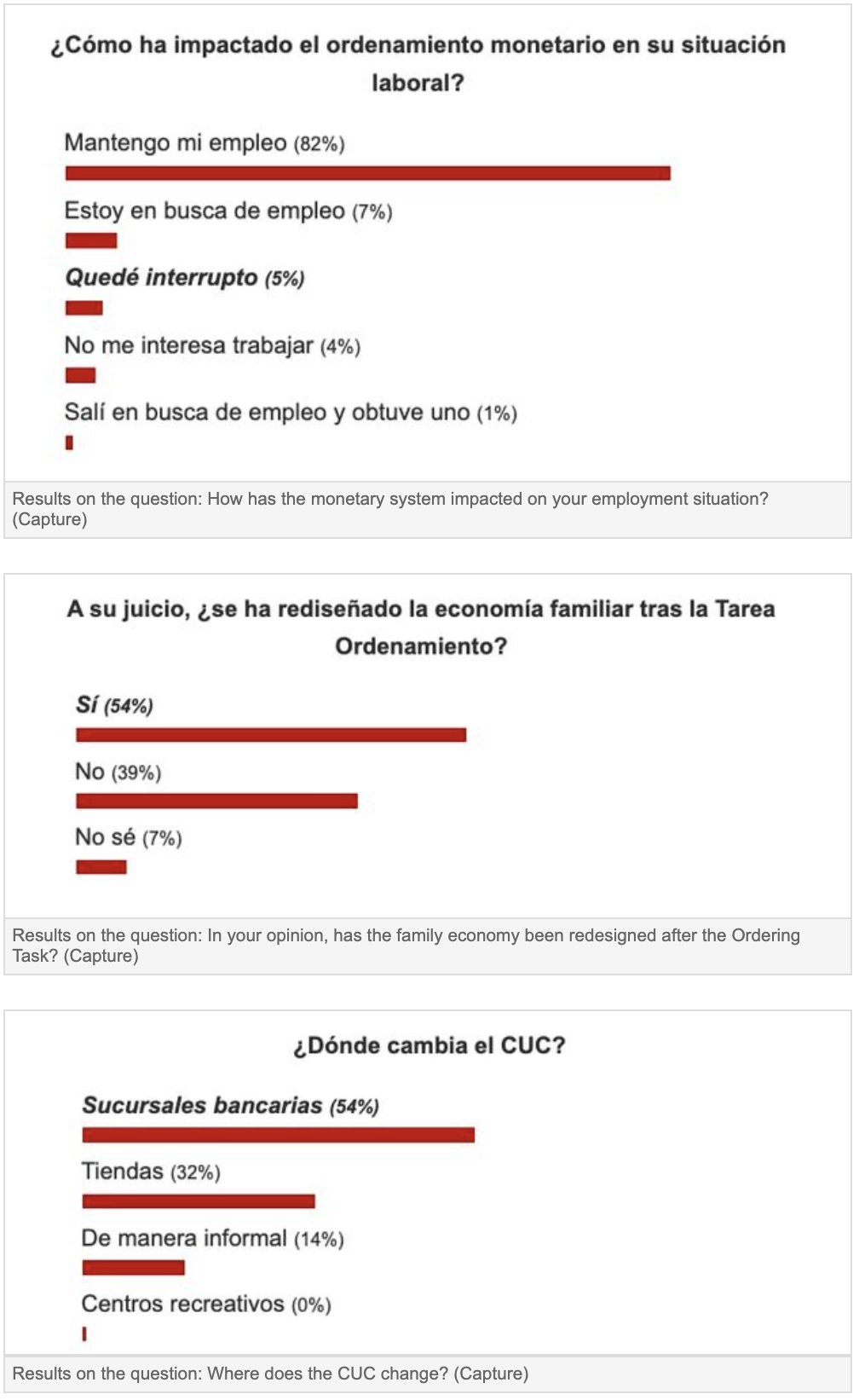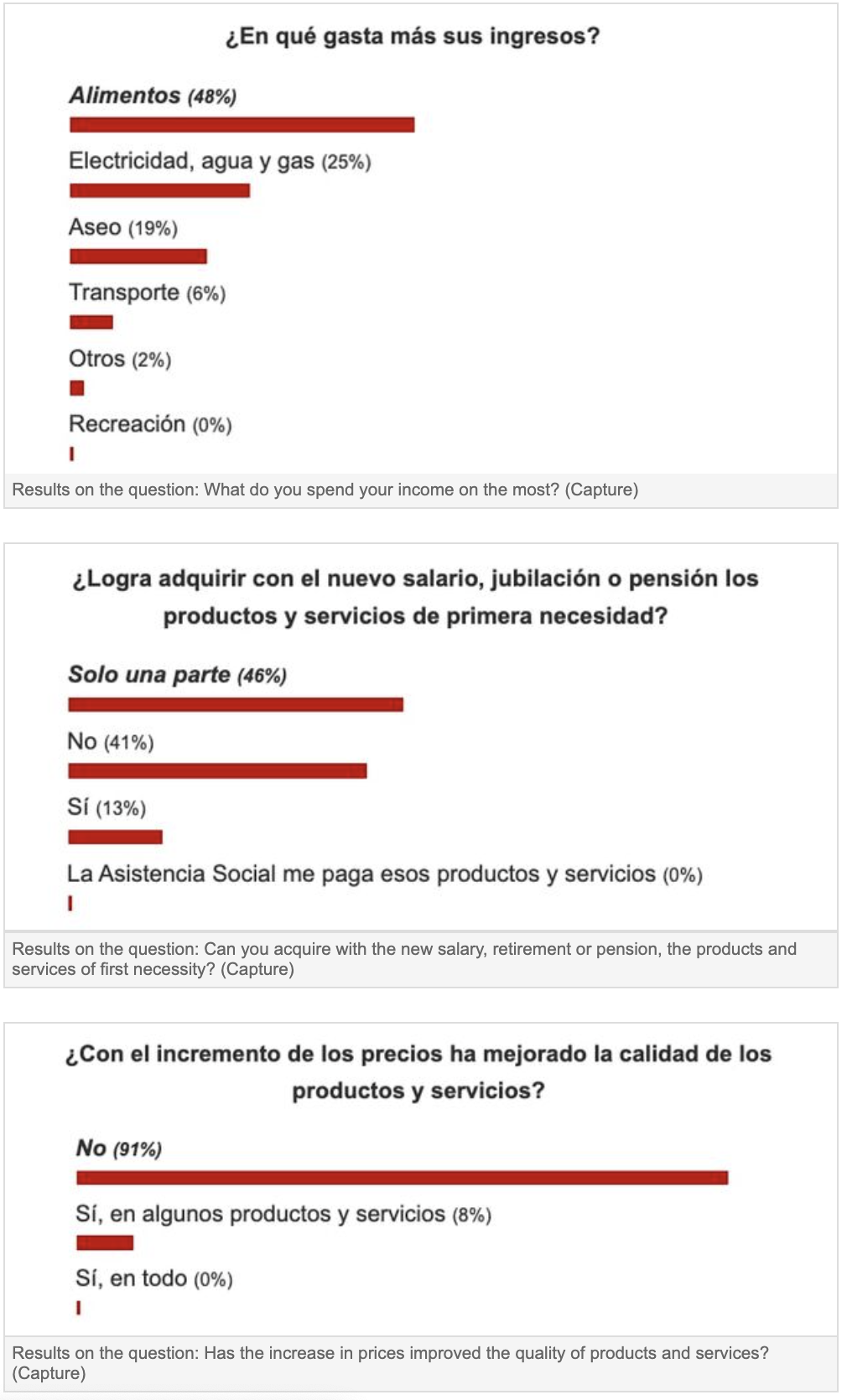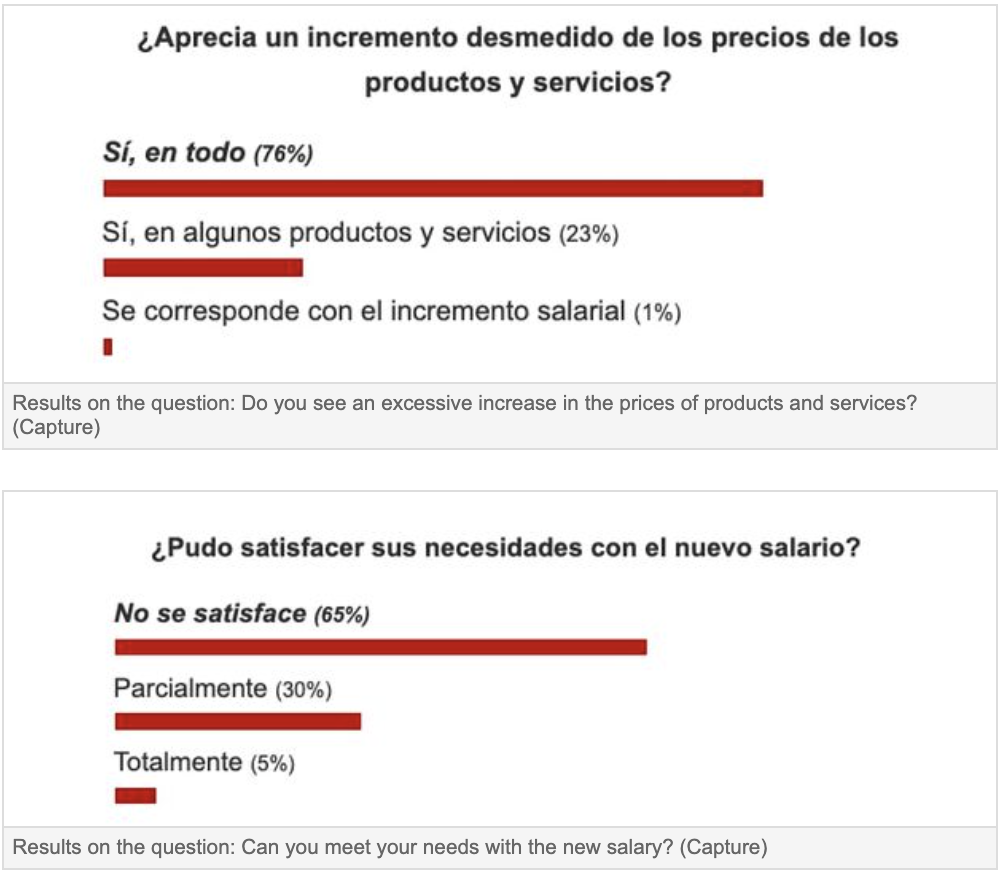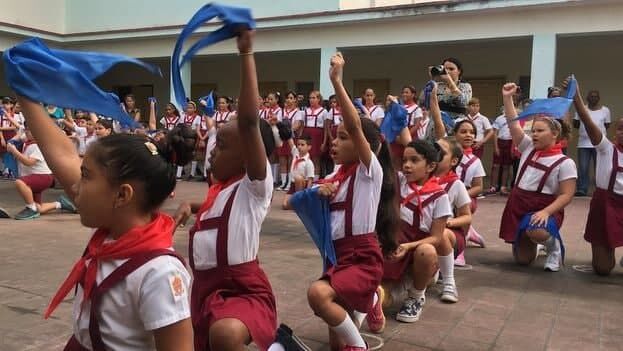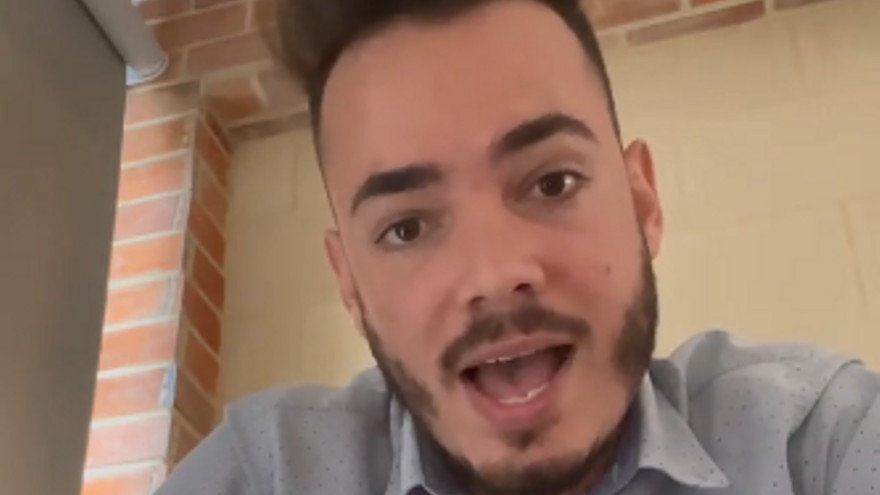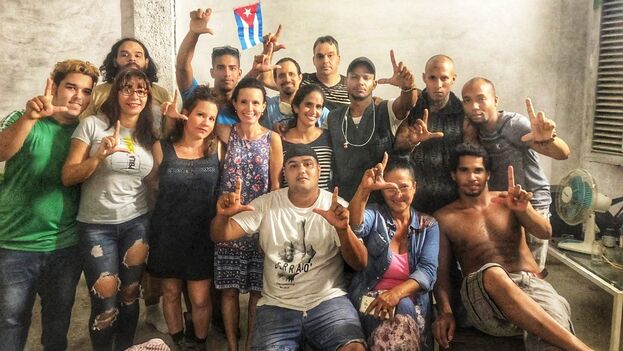
![]() 14ymedio, Juan Diego Rodriguez, Havana, March 8th, 2021 – For weeks now, it has been known that the shop La Epoca, in Havana, was going to open its doors this Monday, and in dollars. And everybody has known that to be able to get in there you would have to join the line several days beforehand. This time the International Woman’s Day gift will arrive wrapped in greenbacks.
14ymedio, Juan Diego Rodriguez, Havana, March 8th, 2021 – For weeks now, it has been known that the shop La Epoca, in Havana, was going to open its doors this Monday, and in dollars. And everybody has known that to be able to get in there you would have to join the line several days beforehand. This time the International Woman’s Day gift will arrive wrapped in greenbacks.
The morning of March 8th arrived, cold and humid, and with strong gusts of wind in the Cuban capital. But, in spite of the bad weather, and before the clock struck seven, the line to get in La Epoca was already nearly 1,000 feet long. Most of the people had spent days getting themselves organised to enter one of the most emblematic shopping centres in the city.
At that time, the police got the shoppers to go three blocks back from the main entrance of the place, to avoid crowd build-ups outside of the markets. But the distance and the fact that they could not see the entrance door, increased their anxiety and their fear of possible irregularities, and gatecrashers. continue reading
Situated on the downtown corner of Galiano and Neptuno, the shopping centre has symbolised one the areas with more shops per metre than anywhere in Cuba. With its breathtaking window displays, now hidden by metal shutters, its escalators which haven’t worked for years, and its several floors which used to be full of merchandise, La Epoca lived up to its name and became a symbol of business effort in the city.
But today’s La Epoca has little resemblance to its previous glamour. Two workmen up on a scaffold were still touching up the facade while the line was getting longer on Monday, the police keeping a close eye on the line and, at nine in the morning, the business still had not been able to open, producing protests and frayed nerves in the line. The agitation led to several trucks with black-capped troops arriving at 10 am to try to control the chaos.
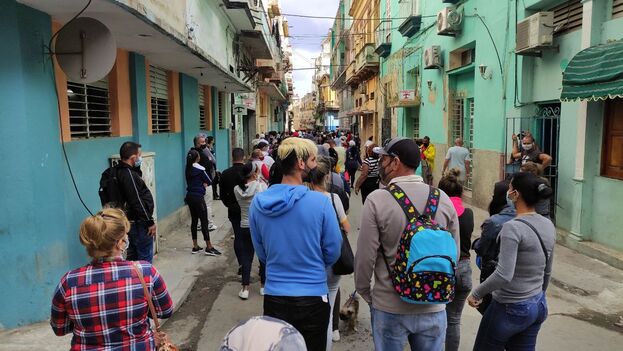
Many of the people waiting outside were women. “I came to see if I could get some cheese and yogurt for my kids, because the price of these things on the black market is more than I am prepared to pay,” 14ymedio was told by Yamile, a 42 year old woman from Havana. “But, to tell the truth, if I had thought about all the time I was going to waste here, it wasn’t worth it.”
Aymara is another one who spent days standing in line. The worst part has been hiding from the police patrolling the area in the early morning to enforce the strict curfew imposed by the city because of the pandemic. Between nine at night and five in the morning, you are not supposed to be out in the streets, so they had to look for other ways to avoid losing their place in line.
“We used a digital line, and, although every day you have to come to confirm your place at six in the morning, the rest of the time you do it through Whatsapp and also on a physical list held by the first people in the line,” explained a young woman. “And I have made all this sacrifice because I was told there is a much greater selection of things in this shop than the others and that they are going to open up with everything.”
But Aymara says she’s tired of waiting all this time and worn out by the situation. “I told my mama not to send me not one dollar more, because instead of sending me money to spend in these shops where everything is expensive and poor quality, she should save the money there so I can get out of this country, I cant stand any more.” The people around her agreed with her.
“And it isn’t worth going to the other dollar shops either. They have created a resellers mafia, employees who get paid to let their friends, or the coleros*, in first,” complains Luisito, who lives in nearby San Miguel Street. He tells me he started to wait in the line last Wednesday, when “a neighbour went past taking names of people who wanted to get in when the shop opened.”
“They told us early on that they were only going to open up the food market, home appliances, and perfumes”, says the man. “But nobody knows exactly because there is no notice or any detailed information on which parts of the shop are open this Monday. The blind leading the blind.”
After 11 in the morning, some employee came out and spoke to the people at the front of the line and said: “The shop isnit ready. Its going to open but we are still putting stuff on the shelves. The appliance section won’t be open today, but we’re doing everything we can to open the market”. They took the ID cards from the first people in the line.
Luisito wants to buy “detergent, some beans which have disappeared from the shelves of other shops, and a bag of milk powder”. But, from the start no-one has been clear about the new way of selling stuff in freely convertible currency. “Some people thought it was going to be a national currency. A bit naive. Been a long time since they opened any new peso shops in the city, hasn’t it?”
The shops selling in pesos are almost empty. Bottle of water, packs of dried fruits which look old, and extremely expensive bottles of tequila are all that is offered in a shop a few yards away from La Epoca. “They’ve been unloading trucks and trucks of stuff since early morning,” said an employee of the shop with nothing in it, indicating the new dollar business.
“Here they seem to have forgotten to stock up on the things that are going to these stores” complains an employee of the state store. “When customers ask, all I can tell them is to cross the street and buy things in the dollar stores.” She is interrupted by the shouting around La Epoca and she looks around to see what’s happening.
“It’s disrespectful. People are paying in a strong currency and they still think they are at liberty to hang about before they open the doors. It’s ten in the morning, and it.s cold.” “Why don’t they open up?” shouts a man who is there with his partner at the front of the line. The people up front are having a row with the police accusing them of “sneaking people in.”
In nearby Concordia the police start to separate out the first group who are going to go in, but time passes and their relieved faces change to frustration at the delay. It’s eleven in the morning and still nobody has managed to get in La Epoca.
*Translator’s note: Coleros are people paid by others to stand in line for them.
Translated by GH
____________
COLLABORATE WITH OUR WORK: The 14ymedio team is committed to practicing serious journalism that reflects Cuba’s reality in all its depth. Thank you for joining us on this long journey. We invite you to continue supporting us by becoming a member of 14ymedio now. Together we can continue transforming journalism in Cuba.



